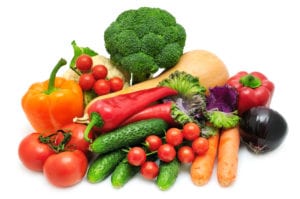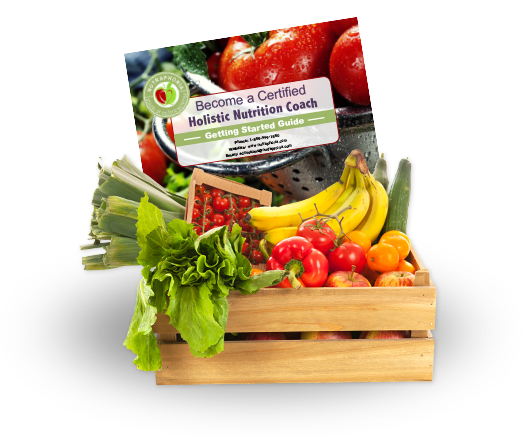November 2, 2017
Why You Should Phase Out Pesticides
Pesticides. We’ve heard about them for years, and the debate over whether to go organic rages on (outside the circle of those who already buy organic no matter what).
I still have friends, family and colleagues who waffle on the organic front with the same excuses and reasoning I used to use — Well, pesticides must be safe if they’re legal. Organic produce has pesticides too. But organic is so expensive. And my favourite: Organic is just a trend for producers to charge more and make more money.
I get it. It’s tough to phase out conventional fruits and vegetables. Opt for the organic maple syrup and peanut butter, and choose the organic kale and collards over the conventional, and the dollar values will be substantially higher. You pay almost twice as much for organic frozen blueberries than you do regular. And while organic bananas seem to have a pretty close price-point to non-organic, most of the time you’re going to be ringing in a few bucks higher for every organic product at the checkout.
This makes it really challenging for families with many mouths to feed on a tight budget, or lower income individuals. But here are a few reasons to consider why choosing organic is a better investment in the long run.
Curb Those Chemical Concoctions
If producers were forced to label what chemicals had been used to make their product grow and get to market, the lists would be longer than the product is large. For instance, strawberries are known to be the worst offenders. “Strawberries tested by scientists at the U.S. Department of Agriculture in 2014 and 2015 contained an average of 7.7 different pesticides per sample, compared to 2.3 pesticides per sample for all other produce.”
In some cases, a single sample of strawberries showed 20 different pesticides. (Environmental Working Group’s 2017 Shopper’s Guide to Pesticide in Produce). That’s a longer “ingredient” list than what’s in most processed food, and it’s a list that you as the consumer are completely in the dark about. We’re told to eat strawberries because of the health benefits (very high in antioxidants for one) these tasty succulent and versatile berries deliver, but if you pop a conventionally grown strawberry in your mouth, you’re also throwing back a chemical concoction that’s potentially carcinogenic. While the chemicals are present in trace “legal” levels, the long-term effects of these trace amounts compounded over time across all the foods you’ll eat in your lifetime are unknown (see the next reason). Opting for organic is an easy way to limit your exposure to chemicals that in all probability could contribute to the onset of illness and disease.
Unknown Long-term Effects
Although pesticides and herbicides are federally regulated, the effects of ingesting these chemicals in small amounts over the long term are unknown, plus with so many subtle toxins being introduced into the food supply at various points along the production chain, it’s almost impossible to isolate any one specific chemical that may be responsible for certain health problems.
Back to the strawberry: the Environmental Working Group (EWG) reports that strawberry growers will sterilize their soil beforehand with poisonous gases to kill every unwanted pest and anything else living in the soil — some of these gases were developed for chemical warfare but are now banned, for obvious reasons. And then there is also the list of contaminants used during the processing to consider: harvested strawberries have also be found to be sprayed to preserve them for shipping, which only adds to the chemical concentration (Staying Healthy with Nutrition, 2006). The only way to avoid this toxic exposure is to choose organic.
Purchasing Pesticides Supports “Big Ag”
When you buy conventionally grown produce, you are giving your hard-earned dollars to “Big Agriculture”, the corporate food producers that don’t have the well-being of people or the planet in mind. In order to make a profit, these companies grow massive monocrops that require the heavy use of pesticides and monopolize the food supply. But it’s been proven that yield actually decreases over time when industrial agriculture methods are used. According to a 2013 United Nations report titled “Wake Up Before It’s Too Late”, major changes are needed in the world’s food, agriculture and trade systems, with a shift toward local small-scale farmers and food systems recommended. Organic and small-scale farming is the answer for feeding the world, not GMOs and monocultures — and that’s the UN talking.
Pesticides Mean Poorer Nutrition
The reason pesticides are used in the first place is to kill any living critters that will interfere with growing the crop — “pests” see the crop as a food source, too — but these chemicals don’t discriminate. Good soils contain populations of bacteria and are teeming with life, and pesticides kill these off too, rendering the soil sterile and depleting it of the very nutrients our bodies require for healthy functioning. As a result, conventionally grown produce contains less minerals, vitamins and nutrients than organic. It makes sense then, that our bodies will require less organic food than conventional for optional nutrition since it’s more nourishing, which means smaller grocery bills; plus, the more people buy organic, the more the demand grows, the more production increases and the price drops.
Acknowledging the challenges when it comes to buying organic food, each year the EWG publishes its Shopper’s Guide to Pesticides in Produce, to help consumers navigate the worst pitfalls of conventional agriculture, steering them away from the most toxic foods and towards those that present the least amount of harm. To find out what the “Dirty Dozen” and “Clean 15” are for 2017, visit https://www.ewg.org/foodnews.
Other ways to phase out pesticides is to find out if any local businesses or health stores sell organic produce bins, which can be very handy since you pick up your bin for a set price and the weekly selection of produce is already made for you. Or visit the local farmers’ market, or even talk to a local farm that offers weekly bins. These options are usually lower cost than buying organic from the grocery store.
In a nutshell, phasing out pesticides is disease prevention that will have you and your family living longer and loving every minute of it. Consider every extra dollar you spend as added insurance for a healthy life with less sick days, more productivity and ultimately more prosperity.


